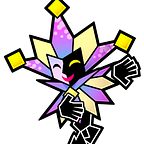Outland Review
The platformer genre has been expanded upon so many times, today it feels as it’s been stretched thin. Yet, game designers are still finding ways to breath new life into the genre with games like Shovel Knight and Celeste. Outland is not “new” by any standard — it actually turns 10 years old in a month — but it was pleasant to discover that it is both thoroughly enjoyable and refreshingly conventional.
Published by Ubisoft and developed by private company, Housemarque, Outland, in some ways, feels like an homage to the 2D platformer genre — a genre which is filled with classics — yet it retains an entirely original style and feel in its gameplay. The art style is coated in exoticism and bursts with color and heavily silhouetted foregrounds to emphasize the oranges and blues that are so crucial in distinguishing between during the player’s brief adventure.
Outland presents its mechanics in a traditional style with its deliberately placed obstacles and enemies. The player is allotted the room to adapt to the universal rules and general feel. Outland’s unnamed protagonist acquires many abilities throughout the adventure and each one of them is given a practical use accompanied by a show-don’t-tell presentation.
One aspect that stands out in particular is the flow of movement paired with the combat. The two blend exceptionally well, and it allows the player to pull off various combos on enemies. Sometimes the hitboxes feel a little too sensitive, but the enemies are a challenging joy to wipe out in one smooth sweep, and this is especially true in the more difficult levels when the player is encouraged to use more special attack moves.
Boss battles account for this joyfully challenging element, as well. They aren’t just composed of wild juxtapositions, but carefully constructed environments to keep the player aware of both the boss’s attacks and the surroundings. It is in moments like these during the boss battles where Housemarque really seems to be aiming for that old-school style of pure platformer difficulty, and they certainly succeed.
Being a 21st century platformer, the level design in Outland isn’t just a left-to-right side-scroller, but a labyrinth of branching pathways with secrets tucked into subtle crevices and obstacles that test your reaction time and quick-thinking skills. The obstacles mostly stem from the versatile light & dark mechanic; the player must switch between the two in order to defeat enemies (of the opposite energy), shield harmful pellets, make transparent platforms opaque, and perform a variety of many more functions.
Outland really only has one whopper of a problem, one that is tough to pin down but tangible as you play: it’s not always the most “impressive” game ever. Perhaps I’m being harsh by asking for too much, but a fair amount of the level design, structure, or whatever aspect it may be does not always feel like its given the same amount of care as other sections of the game. Like I said, this is mostly felt as you play — stretches of Outland feel monotonous, as if the devs had patches of going through the motions, resulting in the player going through the motions via muscle memory over genuine engagement.
This isn’t to knock the instances of sheer brilliance, though. There’s a brief section where the player seems to have to be in both the dark and light energies at the same time or they’re guaranteed to be damaged — which is impossible of course — but you find out that you can block the source of pellets in one of the energies to give yourself the leeway to run through the other, and it’s disappointing the game isn’t always striving for these “ooohhhhh, I see” moments of splendor in its platformer elements.
Outland is a solid platformer that isn’t always guaranteed to floor you from moment to moment, but it conveys enough passion and careful design to distinguish itself from the pack. Its biggest strengths lie in the combat — the boss battles especially — and the inventive light & dark energy mechanic, and its weaknesses lie in its intermittent, sudden laziness.
7/10
